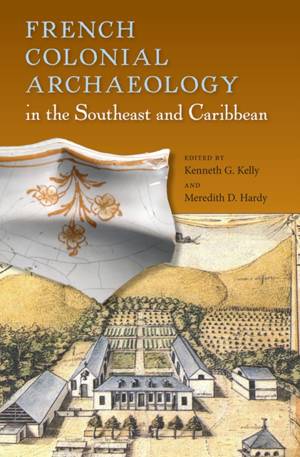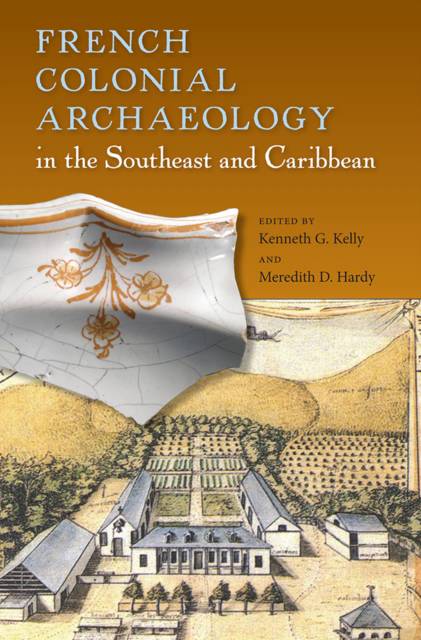
Je cadeautjes zeker op tijd in huis hebben voor de feestdagen? Kom langs in onze winkels en vind het perfecte geschenk!
- Afhalen na 1 uur in een winkel met voorraad
- Gratis thuislevering in België vanaf € 30
- Ruim aanbod met 7 miljoen producten
Je cadeautjes zeker op tijd in huis hebben voor de feestdagen? Kom langs in onze winkels en vind het perfecte geschenk!
- Afhalen na 1 uur in een winkel met voorraad
- Gratis thuislevering in België vanaf € 30
- Ruim aanbod met 7 miljoen producten
Zoeken
French Colonial Archaeology in the Southeast and Caribbean
€ 38,45
+ 76 punten
Omschrijving
"The French in the Western Hemisphere are best known from their activities in Canada and the Great Lakes. This book provides insights into their interactions with their English and Spanish rivals south of the border."--Charles Ewen, East Carolina University "The first collection of broadly multiregional and multidisciplinary archaeological studies addressing the French colonial experience in the southern United States and the Caribbean. The contributions reveal the diverse ways in which French colonists, African slaves, and Native Americans adjusted to new colonial realities through studies of material culture, landscape, architecture, diet, and bioarchaeology. Important source material for all students of the American colonial period."--Kathleen Deagan, Florida Museum of Natural History This innovative collection of essays brings together archaeological research on French colonial sites from Maryland, South Carolina, the Gulf Coast and Lower Mississippi Valley, the Caribbean, and French Guiana to explore the nature of French colonization. Specific contributions explore foodways, ceramics, plantations, architecture, and colonial interactions with Africans and Native Americans, all with an eye to what makes the French colonial endeavor distinct from better-known British or Spanish experience. Crosscutting the volume are such questions as, how are "French" sites different from those of other nationalities, what is the nature of French colonization, how can archaeology help identify particularly national histories in a given colonial setting, and how was French identity materialized and maintained in the New World? Kenneth G. Kelly is professor of anthropology at the University of South Carolina, where he teaches historical archaeology and African archaeology. Meredith D. Hardy is an archaeologist with the National Park Service-Southeast Archeological Center.
Specificaties
Betrokkenen
- Uitgeverij:
Inhoud
- Aantal bladzijden:
- 264
- Taal:
- Engels
- Reeks:
Eigenschappen
- Productcode (EAN):
- 9780813061450
- Verschijningsdatum:
- 15/03/2015
- Uitvoering:
- Paperback
- Formaat:
- Trade paperback (VS)
- Afmetingen:
- 152 mm x 229 mm
- Gewicht:
- 394 g

Alleen bij Standaard Boekhandel
+ 76 punten op je klantenkaart van Standaard Boekhandel
Beoordelingen
We publiceren alleen reviews die voldoen aan de voorwaarden voor reviews. Bekijk onze voorwaarden voor reviews.








